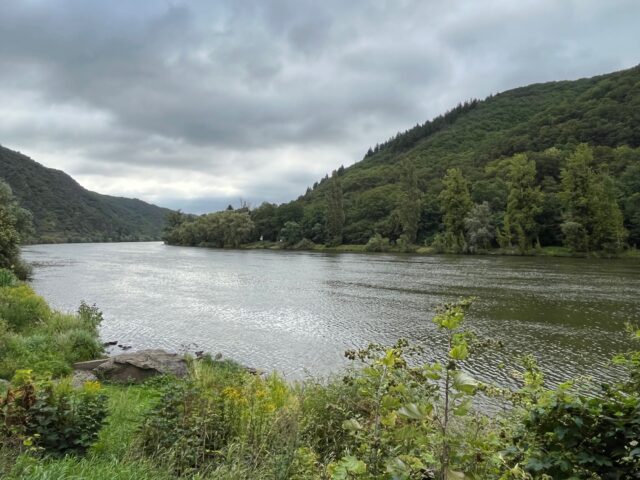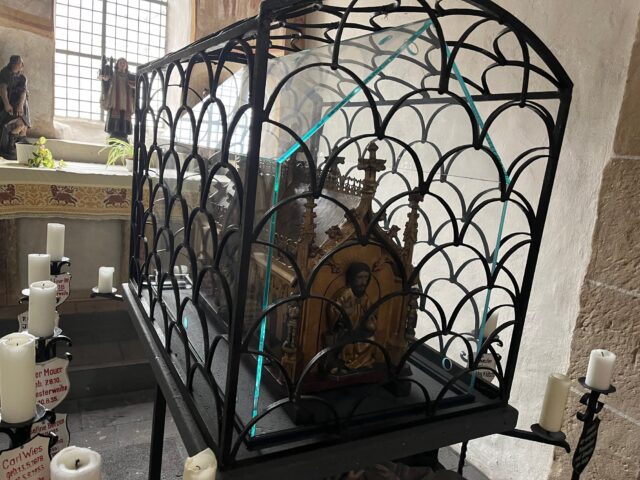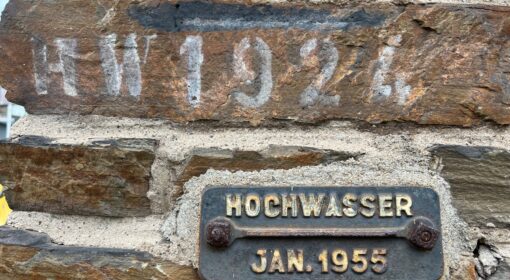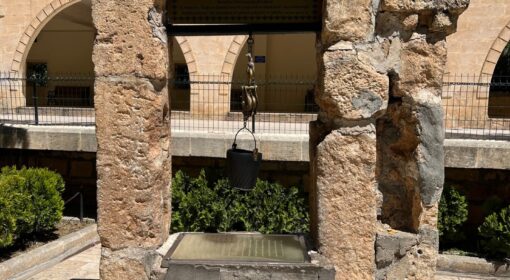
Ascetism became a mystical lifestyle in what is now Egypt, Syria and Turkey in the fourth century, giving rise to the wisdom of the Desert Fathers and Mothers. It is less known that there was a similar tradition of holy people in Europa – seeking solitude and wilderness to be near to God and not be distracted.
The first such European anchorite on record was Castor of Karden (Germany). His mission is directly linked to Eastern anchorites. As Athanasius, the Bishop of Alexandria in Egypt was exiled to Trier in Germany around 336, he inspired several people with his infectious narration of the ascetic lives of early recluses such as Anthony the Great.
Castor was exhorted by Maximinus the Bishop of Trier to follow this example. Castor journeyed to the country up north on the Moselle River, settling in a cave near a place where the river could be waded through, Cardena – now Karden. Here Castor was in the midst of pagan people, of Celtic, Roman and German beliefs. He was joined by three other holy men – Potentinus and his two sons – Felicitus and Simplitus. They formed a small community, spreading belief in the One God and His Forgiving, with many gradually following their call. A legend has it for instance that during heavy weather a boat with a cargo of salt drawn upstream by horses passed close to the bank of the Moselle. Castor asked the boatsmen to be given a pinch of salt, yet he was rudely rejected. Soon the fury of the storm unleashed. The mast of the boat was hit by lightning. Waves went wild and the boat was about to capsize. The boatsmen in great fear now begged Saint Castor to help them. In charity the holy man bowed down and started to pray. Low and behold the storm calmed down and the ship was saved. The pagan boatsmen were awestruck and asked to be baptized. For a long time to come, boatsman on the Moselle would bare their heads when they would sail past the shallow crossing near Castor’s Cave and ask for a safe journey.

Some remains of Castor have never left and are still in the Stiftskirche in Karden, named after him. When his grave was rediscovered almost five hundred years after his death, it inspired a resurgence in the Christian community. For thousand years Castor’s church was the center of a collegiate of priests organizing public and spiritual life in the region. Similarly, his name has never left the Moselle region with churches, schools and businesses still carrying his name.



